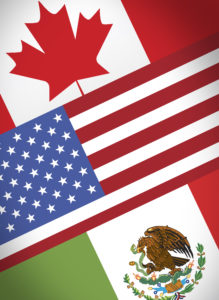News & Insights
U.S. Announces Withdrawal from the Iran Nuclear Deal and the Snap-Back of Previously Lifted Sanctions
On May 8, 2018, the President announced that the United States would withdraw from the Joint Comprehensive Plan of Action (“JCPOA”), and begin reimposing the nuclear-related sanctions that were lifted in 2015. He also issued a National Security Presidential Memorandum (“NSPM”) directing the U.S. Treasury Department and other departments and agencies to begin taking the actions necessary to implement this decision. There will be two separate wind-down periods for activities involving Iran—a 90-day and 180-day wind-down period. At the end of the 90-day and 180-day wind-down periods, the applicable sanctions will come back into full effect. Companies engaging in activities involving Iran that were authorized in connection with the JCPOA are urged to begin winding down those transactions to avoid exposure to sanctions or an enforcement action under U.S. law before the sanctions are snapped back into force.
Overview of the JCPOA
In January 2014, the United States, United Kingdom, France, China, Russia and Germany lifted certain nuclear-related sanctions on Iran in exchange for Iran’s commitment to limit its nuclear program. Subsequently, on July 14, 2015, these countries announced an agreement to restrict Iran’s nuclear program further in exchange for providing additional, phased economic sanctions relief. That subsequent agreement, which is known as the Joint Comprehensive Plan of Action (“JCPOA”) required Iran to take certain initial steps with regard to its nuclear program that would be verified by the International Atomic Energy Agency (“IAEA”). That agreement was formally adopted on October 18, 2015, and the contemplated lifting of additional sanctions was slated to go into effect on “Implementation Day”—the day on which the IAEA was to officially verify Iran’s compliance with its JCPOA obligations. Implementation Day occurred on January 16, 2016, when it was announced that the IAEA had verified Iran’s compliance with its nuclear program-related obligations under the JCPOA. The U.S. then lifted additional nuclear-related sanctions on Iran and began allowing non-U.S. persons to engage in activities that were previously prohibited under U.S. law. However, as noted above, the U.S. will withdraw from the JCPOA and will reinstate the previously lifted nuclear-related sanctions against Iran.
Sanctions to Be Reimposed on August 6, 2018
The JCPOA-related sanctions that will be reimposed after the first, 90-day wind-down period (ending on August 6, 2018) are as follows—
- Sanctions on the purchase or acquisition of U.S. dollar banknotes by the Government of Iran;
- Sanctions on Iran’s trade in gold or precious metals;
- Sanctions on the direct or indirect sale, supply, or transfer to or from Iran of graphite, raw, or semi-finished metals such as aluminum and steel, coal, and software for integrating industrial processes;
- Sanctions on significant transactions related to the purchase or sale of Iranian rials, or the maintenance of significant funds or accounts outside the territory of Iran denominated in the Iranian rial;
- Sanctions on the purchase, subscription to, or facilitation of the issuance of Iranian sovereign debt; and
- Sanctions on Iran’s automotive sector.
In addition, OFAC will reinstate the ban on imports into the United States of Iranian-origin carpets, food and certain related financial transactions under the General Licenses in the Iranian Transactions and Sanctions Regulations (“ITSR). OFAC will also revoke Specific Licenses that were issued to companies under the statement of licensing policy for exports or reexports of commercial passenger aircraft, parts and services in connection with the JCPOA, as well as General License I relating to contingent contracts .
Sanctions to Be Reimposed on November 4, 2018
Following the second, 180-day wind-down period ending on November 4, 2018, OFAC will reimpose the following sanctions:
- Sanctions on Iran’s port operators, and shipping and shipbuilding sectors, including on the Islamic Republic of Iran Shipping Lines (IRISL), South Shipping Line Iran, or their affiliates;
- Sanctions on petroleum-related transactions with, among others, the National Iranian Oil Company (NIOC), Naftiran Intertrade Company (NICO), and National Iranian Tanker Company (NITC), including the purchase of petroleum, petroleum products, or petrochemical products from Iran;
- Sanctions on transactions by foreign financial institutions with the Central Bank of Iran and designated Iranian financial institutions under Section 1245 of the National Defense Authorization Act for Fiscal Year 2012 (NDAA);
- Sanctions on the provision of specialized financial messaging services to the Central Bank of Iran and Iranian financial institutions described in Section 104(c)(2)(E)(ii) of the Comprehensive Iran Sanctions and Divestment Act of 2010 (CISADA); v. Sanctions on the provision of underwriting services, insurance, or reinsurance; and
- Sanctions on Iran’s energy sector.
OFAC will also revoke General License H which authorized certain activities between U.S.-owned or -controlled foreign entities and Iran, as well as reimpose the sanctions against the parties that were removed from the Specially Designated Nationals List and other U.S. restricted parties lists in connection with the JCPOA.
Certain Allowances to Be Given to Non-U.S. and U.S. Companies
In its new FAQs that were posted on May 8, 2018, OFAC advised non-U.S./non-Iranian persons to wind down their activities with Iran prior to the expiration of the applicable time periods. In particular, OFAC announced two allowances that would be granted to non-U.S. companies—
- OFAC first stated that if a non-U.S/non-Iranian person is owed payment after the expiration of the wind-down period (on either August 6th or November 4th as applicable) with respect to goods or services that were delivered to Iran before the wind-down periods’ expiration pursuant to a written contract in effect prior to May 8th, then OFAC will allow the receipt payment for those goods and services.
- Similarly, OFAC stated that if a non-U.S./non-Iranian person is owed repayment after August 6th or November 4th for loans or credits extended to an Iranian party before the end of the applicable wind-down period (and provided that such loans or credits were extended pursuant to a written contract that existed prior to May 8, 2018), then OFAC would allow for the repayment of the debt or obligation.
OFAC noted that these allowances are designed to make non-U.S./non-Iranian parties whole for debts and obligations owed or due to them for goods or services that were fully provided or extended to an Iranian party before the conclusion of the applicable wind-down period.
OFAC also stated that it would take steps to allow U.S. persons and U.S.-owned or -controlled foreign entities until August 6th or November 4th to wind down operations involving Iran and to receive payments according to the terms of the written contract that existed prior to May 8, 2018, for goods or services that were provided.
OFAC’s Next Steps
As noted above, OFAC stated in the FAQs that it intends to replace General License H, General License I, and the general licenses set forth at 31 C.F.R. §§ 560.534 and 560.535 (relating to trade in Iranian-origin carpets and foodstuffs) with more narrowly scoped authorizations as soon as it is administratively feasible. In addition, effective as of May 8th, OFAC will no longer evaluate Specific License applications under the JCPOA statement of licensing policy; however, it will still consider applications under the safety of flight statement of licensing policy found in 31 C.F.R. § 560.528. Further, OFAC intends to begin revoking Specific Licenses that were issued to companies in connection with the JCPOA statement of licensing policy, and will return affected license applications that are currently pending without action.
For further details see:
Statement by Secretary Munchin: https://home.treasury.gov/news/press-releases/sm0382
Statement by OFAC: https://www.treasury.gov/resource-center/sanctions/Programs/pages/iran.aspx
New OFAC FAQs: https://www.treasury.gov/resource-center/sanctions/Programs/Documents/jcpoa_winddown_faqs.pdf
Conclusion
It is crucial for affected U.S. and non-U.S. companies to begin taking steps to wind down their activities and transactions involving Iran before the JCPOA-related sanctions are reimposed. If you have any questions pertaining to the President’s recent announcement, U.S. sanctions on Iran or other international trade issues, contact Melissa Proctor at Miller Proctor Law PLLC (melissa@millerproctorlaw.com).
News & Insights

And Then There Were Three: The U.S., Mexico and Canada Agree to Sign the New USMCA
Canada just joined the United States and Mexico in agreeing to sign on to a modernized NAFTA, which will become known as the US-Mexico-Canada Agreement (“USMCA”). The U.S. and Mexico entered their agreement a little over a month ago, and

Dirty Tricks and Sneaky Tactics: U.S. Issues Advisory on Sanctions Risks Involving North Korea
On July 23, 2018, the U.S. Departments of State, Treasury and Homeland Security issued an advisory that warns companies of the tactics used by North Korea to evade U.S. and United Nations economic sanctions. Today’s advisory does not impose any


